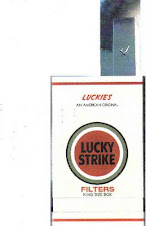Bacon, who died a bankrupt, took a great deal of trouble to teach his generation that true science is the development or economy of forces, which sounds reasonable enough until one pauses and realizes one knows nothing about either the formulae nor forces to which he refers. Yet it is the forces, harnessed or otherwise, that impact us on a daily basis and that we struggle to grasp and control as we attempt to find new methods to bend nature to our will without killing it (or ourselves).
The current American joy of destruction is evinced by the culture's highest achievers currently being congratulated by their fans shouting: "You're killing it!". It isn't a dire warning imploring one to stop what one's doing lest one causes irreversible damage culminating in death. No. In modern America telling someone "Hey! You're killing it!" means you're doing great ... keep up the good work! Elsewhere in the universe, killing the host is considered a self-destructive act to be avoided at all costs. You're killing it is therefore usually a warning, not an exhortation.
That's what happens when your culture has become so besotted by militarism that you start using phrases even a Nazi would find bizarre. Partie tag in Germany never got quite this barbaric. It's our milieu. We argue that video games that characterize casual violence as not affecting the behavior of its participants only because we are so immersed in the various uses of force that to even consider that we have any control of military force any more than of automotive force, or electrical and nuclear forces is anathema to our assumptions about life. As though having diverted entire rivers to run dynamos to deliver their force in a manner we prefer means that we have lost respect for the father of force: Power; elemental power that needs no generation or transmission system because it just Is.
I've become interested in this because, I've wondered for some time now how we became so enured to the slaughter on our roadways. It's as though I was born in another time and was just plucked down in the middle of the 20'th century as an auto virgin ... but how can that be? My Grandfather owned a garage, something that in those days didn't mean a gas station with a Quickie Mart attached. It was what they used to call a service station, because cars, all coming out of Detroit, had to be serviced far more frequently before Japan started showing American drivers that workers getting paid Union-level benefits and wages, were actually capable of producing quality products that one needn't FixOrRepairDaily, an acronym every Ford owner could sympathize with in those days.
My Uncle was a mechanic, my father a salesman, my cousins so enamored with the enterprise, they started one of their own. Our home garage was stuffed to the gills with stacks of tires, our milieu reeked of gasoline from smudged coveralls, and we marveled at the beauty of an oil stain as it floated on a puddle in the middle of the driveway, it was a source of wondrous fascination. Therein shone all the colors of the rainbow, but darker, more complex and subject to our attempts at intermingling them. We went into our garage so often to play hide and seek among the towering columns of rubber we could tell a Uniroyal from a Michelin blindfolded just by inhaling their brand-unique fumes.
So what happened? Was it my brother's NDE from inhaling toluene? My sister's ghastly gash in her leg that resulted from her fall onto a rusty car fender thrown in the alley next to the garage (the fender, not her)? My own terror as I watched the roadway speeding under me as the car door my brother unlatched in midturn swung open, taking me with it, holding onto the handle for my dear 9-yr-old life, knowing if my grip failed me the back tire would make quick work of crushing me beneath it? The distinct uneasiness I felt as a helpless child speeding through space with nothing between me and a dashboard bristling with metal or a windshield I'd seen enough televised accidents to know one could be thrown through simply by too-quick a stop? There was then absolutely nothing to hold on to. Seat belts, being for sissies, were fought tooth-and-nail by the manufacturers and would still be non-existent if the auto industry had had its way. By the turn of the century they had calculated, with the buildup of the interstate highway system and the resultant increase in speed, that fatalities from carnage would be around 150,000 a year, a figure they had no problem with ... and that's just the fatalities. (As in War, the death toll is around 10% of the injuries).
I'm not sure. But it might have been the economic costs. Right up front, before you could even get a job, you needed a conveyance to get you there, but from whence would this miracle car come from when, not having the job you couldn't get to, how could you buy anything that expensive, let alone insure it? What has me thinking of all this are three books, all of which I had out of the library at the same time:
Kendra Pierre-Louis' Green Washed,
Leonard Pitt's, My Brain on Fire, and
Henry Adams', The Education of Henry Adams.
Now I'm admittedly a bit of a book nerd, but what actually makes it even more wondrous is that, having rarely seen any commentary from any one on the subject of our un-consciousness of the car's usurpation of our humanity, and therefore not seeking it out, that three books that made nary a reference to the automobile in either their titles or blurbs, should all three mention the fact that the car is an anomaly. A triumph of science, to be sure, but also so completely ingrained and inextricably entwined with modern life as to make its primacy unnoticed. You have perhaps noticed me pointing out again and again, since the silence on the subject is deafening, that at the center of Climate Change's acceleration is the gas pedal, yet their manufacture remains on an upward trajectory as steep as the downward slope of any chance of their being mentioned as a means of allaying global warming by the cessation of manufacturing ever more of them.
Now, having lived in a world without them, Henry Adams couldn't help but notice, while attending the St. Louis expo, that the New American, as they were being called then, was the servant of the automobile, much as the 12'th century peasant was the servant of the Church, and the features followed the parentage: a product of mechanical power bearing no distinctive marks but that of its pressure. Like gunpowder, the automobile left whole races trammeled underfoot, its carnage exceeding that of War even as fire-arms ravaged society, the forces being unleashed of such magnitude they make an earthquake seem like a nervous relaxation of tension. An immense volume of Force had been turned on humanity with more compulsive energy than all the gods or nature or Gold that ever existed. Yet the lines of force, unless in the form of gas lines, are tacitly submitted to by everyone they coerce into buying their own little chemical weapon of mass destruction.
Thus reduced to but another motion in a universe of motion, we are handed over for a few dollars the ability to attain and apply power at the touch of a button or the tap of the toe what every generation beforehand had toiled with endless agony to achieve a smidgen of. Humanity has accelerated itself into a world of vertiginous violence we are unable to meddle with, as it is born of a science that lies in the plane where few minds in the world can follow its mathematical progress, while those the most enslaved to its mechanical forces while bereft of a jot of understanding as to how they work, are the same ones screaming at people at the top of their voices that "God didn't separate the races just to have them intermarry", or that such-and-such isn't moral "'cause it isn't mentioned in the Bible", as they drive by in their Car, run by a Computer, and fueled with Gasoline, and nobody cares to point this out to them, because those marvels are just as milieu'd out of their own consciousness, as though they are a priori: as much of the scene as a garbanzo bean.
Which brings up the reason Leonard Pitt objected to the car in, My Brain on Fire: it's reduction of the landscape our journeys traverse but to a blur by the speed in which we fly through them. This was something Adams wasn't so exposed to, there being mainly poorly-built roads when the auto first ventured out of Daimler's factory onto rutty roads and byways filled with horse-drawn conveyances and frequently being made use of by various farm animals.
Tom Wolfe's Bonfires of the Vanities described the phenomenon, but in a different sense: the urban landscape as pockets of penury and Balkanized ghettos being what his protagonist accidentally finds himself face-to-face with, having spent most of his life sailing over them with never a glance of concern, his eye catching therefore nary a glimpse of the despair there. But a similar invisibility is conferred to our natural surroundings as well, so no cry goes up when a beloved copse is trashed to become a "Rest Area", or a tree-filled dividing strip is cleared to make yet another lane, to accommodate even more rolling metal cages puffing like chimneys, filled with passengers who complain of industrial pollution while they, en masse, produce far more than the worse corporate offenders, yet never questioning what it is they produce by their prodigious combustion of fuel.
Which point brings up Kendra's GreenWashed, which makes the completely ignored but salient point that we can't consume our way to a greener planet; we can't buy ourselves a new atmosphere; purchase another ocean on the lay-away plan. Disaster Capitalism is called that for a reason, and pretending that it will somehow sequester carbon, for example, as it continues to unearth at a breakneck pace carbon that had been sequestered for millions and millions of years, is delusional. And nothing more sadly points out that tragic mindset than the couple pictured at the top, accompanied by their parents, going to see the "Progress" evident in yet another missile launch into space, blindly obeying their GPS and pulling a uey right into the path of a Behemoth road hog and getting pulverized in an instant into a bloody heap of corpses.
 |
| “Truck” sales soared 16.3% in March year-over-year. Car sales plunged 9.2%. The Fords be with you. |
But because there was the spectacle of yet another crazed shooter firing guns at people and then taking her own life on the other side of the continent, and because that is what the populace likes to stare aghast at and panic themselves over, this little incident got the bum's rush. In California, no one was killed other than the gunwoman (it was basically a suicide). She was but another poor soul with no one to turn to, and so she turned on YouTube, and then on herself. The carnage that really happened and snuffed out the lives of yet another entire family, rated just another shrug, another accepted tragedy, an unavoidable accident. In our current milieu, one wouldn't be surprised to hear the pickup's driver being congratulated for his truck-handling skills: "You're Killing It!"




















































No comments:
Post a Comment